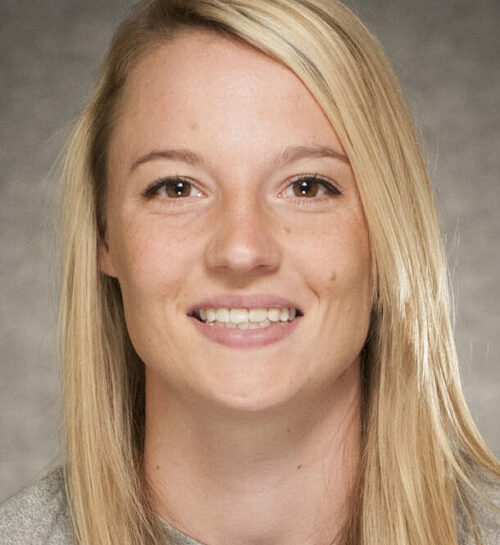International Women and Girls in Science Interview
Dee Hayward
International Day of Women and Girls in Science recognises the critical role women and girls play in STEM (science, technology, engineering and mathematics). To celebrate the day, we spoke with Dee Hayward, a first-year PhD student whose studentship has been funded by Big C.
Since October, Dee has been working with Dr Andrew Beekman of the University of East Anglia on a project researching small molecules to target PD-L1, a type of interaction in the body that ensures the immune system is only activated when appropriate to avoid autoimmune disease, in hopes of creating a new type of cancer treatment.
We asked Dee more about her journey in STEM: what her research project is and how it is going despite COVID-19 and what advice she has for women and girls interested in pursuing careers in STEM.
“Science, Technology, Engineering and Maths (STEM) has continued issues with diversity and is still a male dominated career choice. There is under representation of women within STEM, however it has improved in recent years and should continue to be highlighted to encourage young women to pursue this career path”
What did you study at University?
I studied a BSc in Biology with a minor in Chemistry and a MSc in Pharmaceutical Sciences and Medicinal Chemistry before my PhD.
What is your research project?
I’m currently researching a small molecule that will function to replace antibodies that act to block the protein protein interaction between PD-1 and PD-L1, an immune checkpoint. By blocking this interaction, this may allow our immune system to attack a tumour through our T-cells, or the white blood cells of the immune system.

Why do you think research project is important?
All research that can provide a better insight to less toxic cancer and tumour treatments is essential. This research is a stepping stone in providing another outlook on cancer treatment.
How has it been working in research during the COVID-19 pandemic? What are some difficulties you and the rest of your team have faced? Have there been any positive aspects to it?
We have been very fortunate to have been allowed to continue research in the lab with social distancing rules enforced by splitting our lab members into morning and night shift. One of the positives is with less people there is more opportunity to use the instruments, however we are missing our other lab members so hopefully we will be back to normal soon.
What drove you to pursue a career in STEM? Have you always wanted to work in the sciences?
I enjoyed science while at school, however coming out of high school I was more focused on sport than science. I was midway through my degree in a summer placement doing medicinal chemistry when I realised that I really enjoyed research and continued seeking way to continue this career path.
What is an issue or issues you think women and girls still face in STEM?
STEM has continued issues with diversity and is still a male dominated career choice. There is an under representation of women within STEM, however it has improved in recent years and should continue to be highlighted to encourage young women to pursue this career path.
If you could give one piece of advice to a young person interested in pursuing a career in a STEM, what would it be?
To have perseverance, always continue looking for the next opportunity and don’t let any setback halt you from what you’re trying to achieve.
What does the future look like for you? What would you like to do after your research has completed?
Currently, my focus is my present research and making it through my PhD! I don’t know that research is ever completed but at the end of my PhD I’d like to stay within research and possibly get involved in lecturing. I guess we will see!
Let’s keep in touch
Subscribe to our mailing list to receive news and updates from Big C.